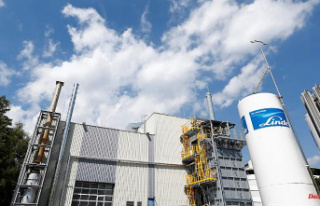War in Ukraine, inflation, supply chain bottlenecks: the slowdown in the global economy is unmistakable. The IMF therefore intends to reduce growth expectations again in July. "2022 will be tough and 2023 could be even worse," warns fund manager Georgieva.
The International Monetary Fund (IMF) wants to lower the global growth forecast again. "I wish the prospects for the global economy were as rosy as the sky in Bali, but unfortunately that's not the case," said IMF chief Kristalina Georgieva at the meeting of finance ministers and central bank governors of the most important industrialized and emerging countries (G20). Balinese. The new forecast is due to be presented at the end of July and predicts slower growth in 2022 and 2023.
The war in Ukraine has intensified and is putting additional pressure on commodity and food prices, Georgieva said. At the same time, global financial conditions tightened more than previously thought.
The ongoing pandemic-related disruptions and renewed bottlenecks in global supply chains weighed on economic activity. It is important that the countries do everything in their power to lower inflation, emphasized the head of the IMF. Failure to do so could jeopardize the upswing. "The good news is that central banks are stepping up their efforts."
The head of the IMF reiterated her statements of the past few days. In the run-up to the G20 meeting, she warned in a blog that the risks of a recession for 2023 were increasing. Georgieva also reminded that the IMF had already reduced its growth forecasts for both years to 3.6 percent each in April and warned that things could get worse given the downside risks.
The war in Ukraine is leading to more human suffering and high commodity prices, which are weighing on growth and endangering the feeding of hundreds of millions of poor people: "And it's getting worse," she wrote.
Further disruptions to Europe's natural gas supplies could plunge many economies into recession and trigger a global energy crisis. "2022 will be a tough year, and 2023 could be even tougher - including an increased risk of recession," said the IMF chief.
A few days ago she also commented on the crisis in strong words: The corona pandemic was already a "crisis like no other", now the global economy is entering "even more shocking terrain" with the war in Europe. The head of the IMF has not yet said how much the IMF intends to lower its forecast for global economic growth.












